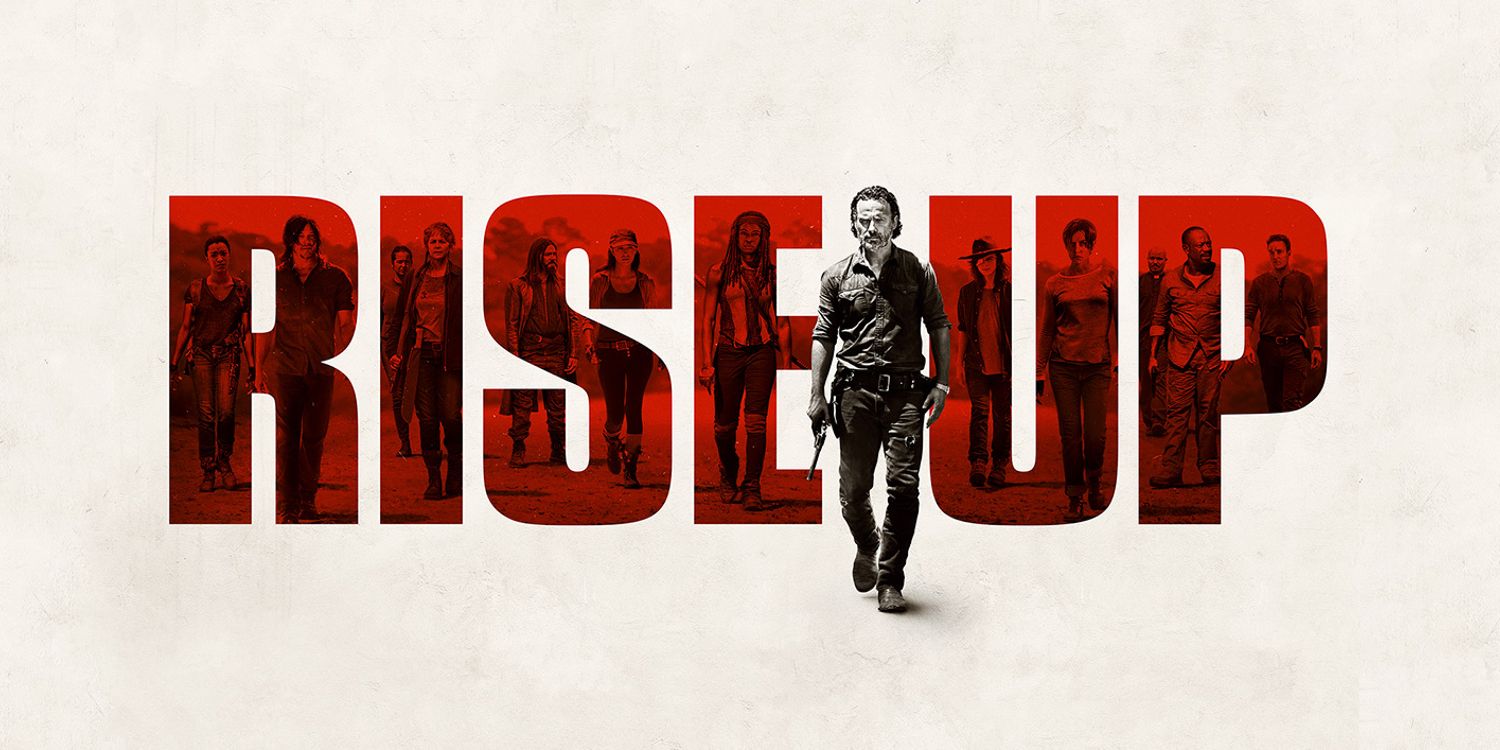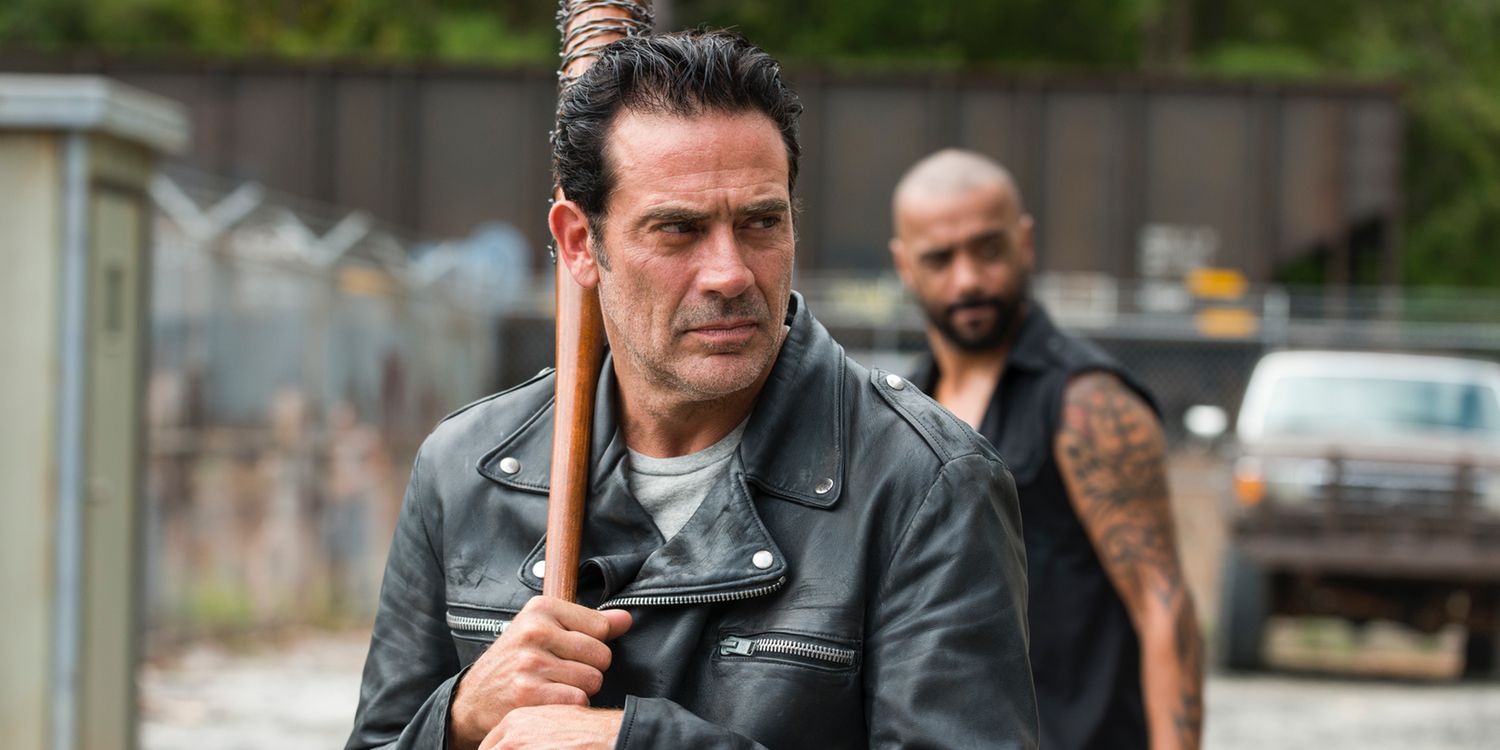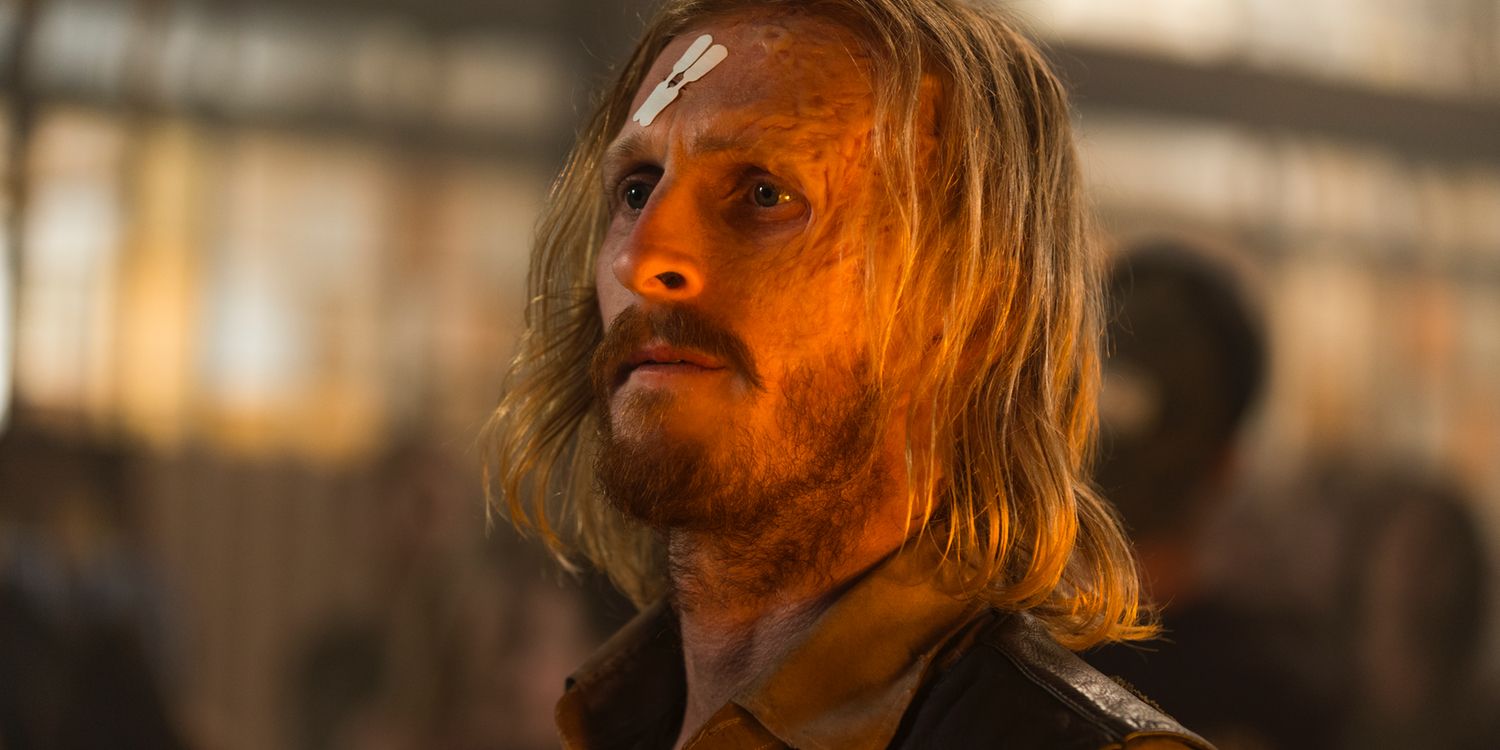It has been two weeks since The Walking Dead returned from winter hiatus, and in that time the Big Bad making life miserable for the survivors has only appeared via a brief radio communication, lamenting the loss of Fat Joey. The moment was notable – not just for being one of the few times Negan was actually funny, but because it underlines how the best way for the series to put the character to use. As it was throughout most of season 6, Negan tends to work best as an off-screen threat, a menace lurking somewhere unseen just waiting to dole out punishment to Rick and the other survivors. Jeffrey Dean Morgan's voice and the fear of his proximity made the midseason opener's zombie-mowing scene more than it otherwise might have been, as the threat of Negan and his crew showing up provided the requisite amount of tension to a moment the series has essentially recycled the basic premise of for nearly seven full seasons.
In other words, since the midseason premiere, The Walking Dead has found itself in a strange place of building the conflict between Rick's growing army and Negan's Saviors, with the added benefit of not relying on the presence of Negan as the first half of season 7 did. The result has been an oddly light couple of episodes that gleefully steered into the silly turn of introducing a heretofore unheard of community residing in a massive junkyard/dump, and whose leader drives a hard bargain but is willing to send her people off to war in exchange for, of all things, the implements of war.
Silly as it was, last week's 'New Best Friends' at least served a purpose other than reestablishing what a mean guy Negan is. It was a refreshing change of pace from the monotonous brutality of what season 7 had delivered up to this point, which makes 'Hostiles & Calamities' something of a challenge, as it shifts the focus back to Negan, the Saviors, and their newest captive, Eugene. It's hard to say where the show will draw intrigue from in this scenario, as you might be hard-pressed to find a contingent of devoted Eugene fans who would take to social media to express their shock and outrage in the event the cowardly character met with Lucille for a little one-on-one conference – or wound up the victim of some other misfortune.
Since Eugene's imprisonment with the Saviors isn't necessarily as worrisome to fans as, say, Darryl's incarceration, The Walking Dead has to shift gears in order to make the scenario of interest – especially if the episode is going to focus entirely on the Big Bad and his motley crew, rather than capitalize on the narrative momentum gained over the last two episodes. In that regard the show has one potentially solid option in that it can finally begin to pay off all the time spent with Dwight, establishing the reasons for why he might want to, you know, double-cross the guy who stole his wife and scarred his face.
With that, The Walking Dead tries its hand at splitting the episode's narrative between something the audience has seen repeated again and again this season, and the inner workings of Dwight's mind. The end result, then, is an uneven hour that feels as though it squandered the energy of the previous two episodes to spend time at the Sanctuary and rehash things the audience already knows. Eugene being alone and frightened in the Saviors' territory might be a new scenario, but that situation doesn't initially promote any change in either the southern-fried coward or Negan. Instead, 'Hostiles & Calamities' choses to explore well-trodden territory by again demonstrating what a world-class monster Negan is and how Eugene's spinelessness serves as his defining characteristic, far more than his ingenuity or ability to lie about his accomplishments.
The problem with that is neither aspect is interesting enough at this point to warrant the dedication of an entire episode. Eugene's assimilation into the Saviors' way of life – hastened by both creature comforts and a sense of authority and purpose – doesn't offer up anything new about the character. Even if his intention is merely to survive by placating Negan, the effort still underlines Eugene's cravenness and how he inevitably makes anyone he's standing next to look strong by comparison. By positioning his assimilation against Dwight's search for Sherry and her expository letter explaining that he's not such a bad guy, The Walking Dead works hard to turn the contrast of the two characters' respective situations into the episode's driving force, but any potential intrigue generated by that contrast is undone by the sameness of the environment and Negan's repetitive actions. In this case, Negan is preparing to take a hot iron to the Sanctuary's doctor, but instead he just tosses the guy into a fire.
For the most part, 'Hostiles & Calamities' is preparing for a probable turn by Negan's right-hand man. Table-setting episodes are nothing new for The Walking Dead, but this one comes at the expense of a two-episode run where it seemed like the season was finally in gear and ready to get down to the business of storytelling. In the end, it becomes something audiences have seen time and time again: a promising start to a storyline undone by the show's eagerness to reiterate just how cruel its characters and their world can be.
Next: Walking Dead: Why Daryl Lied According to Norman Reedus
The Walking Dead continues next Sunday with 'Say Yes' @9pm on AMC.
Photos: Gene Page/AMC



